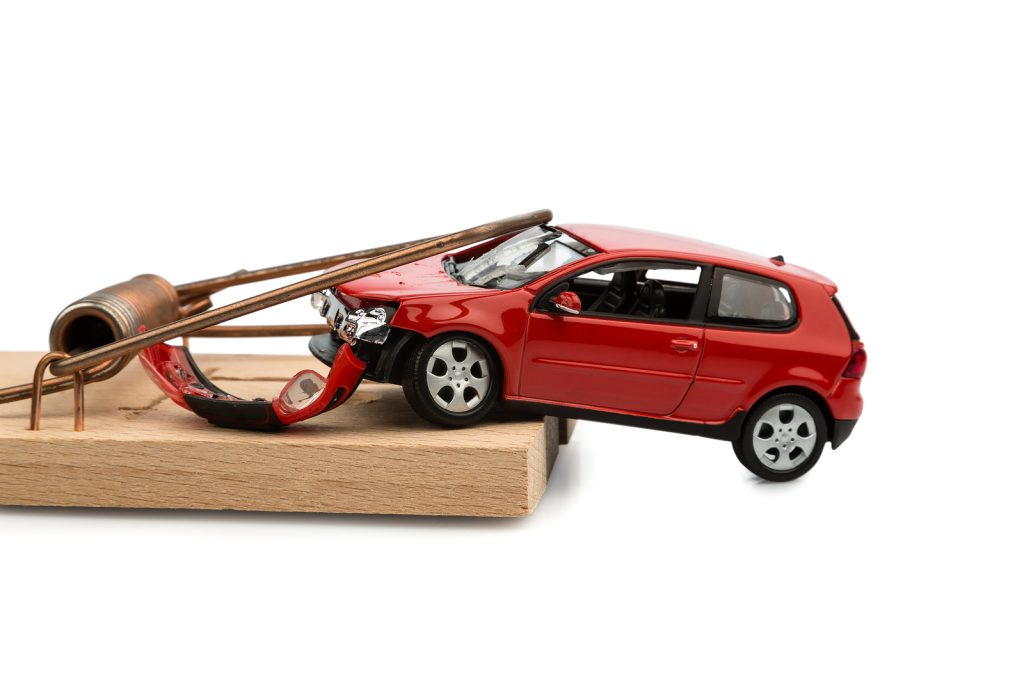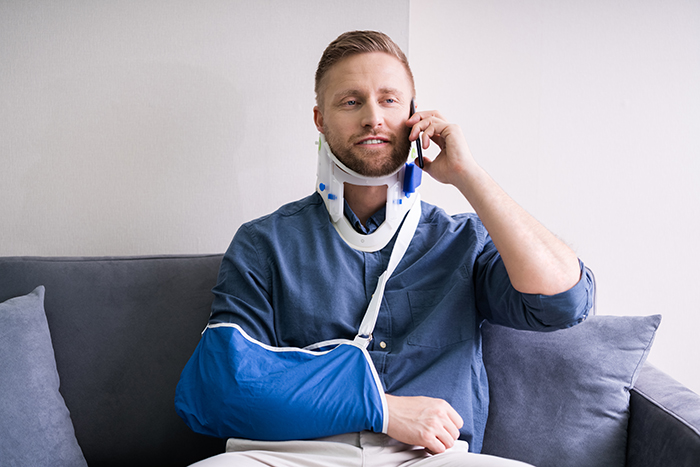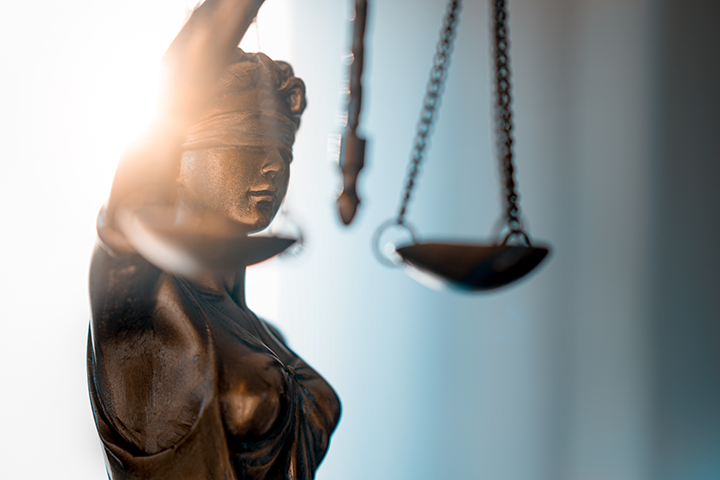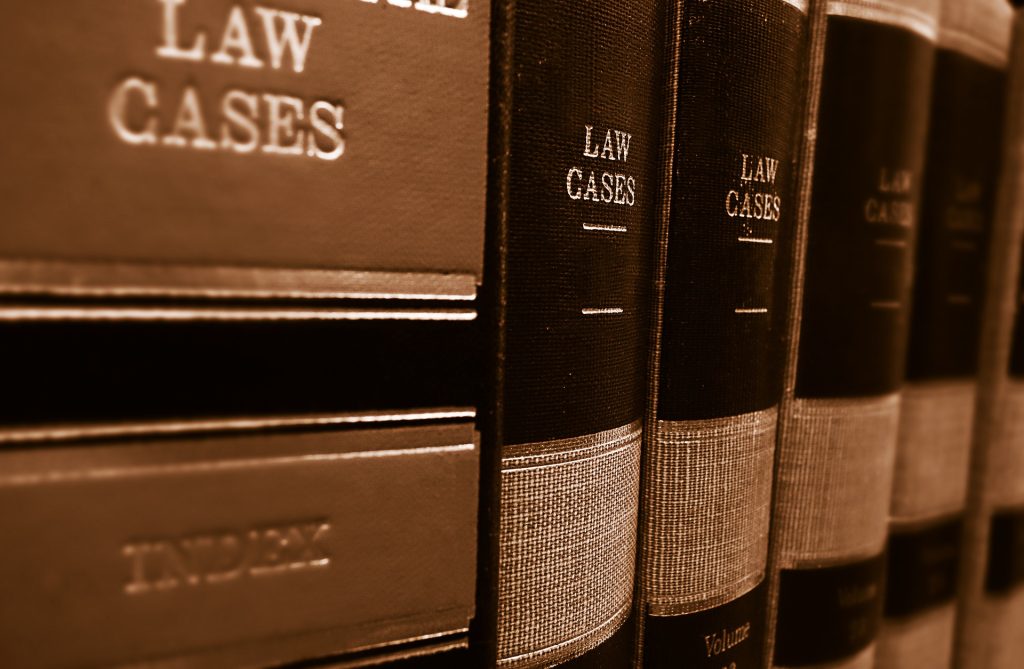The Car Insurance Trap You Should Avoid After an Accident

Navigating the aftermath of a car accident can be overwhelming, especially when dealing with insurance companies. It’s easy to assume that insurance adjusters are there to help, but speaking with them can sometimes lead to complications. For private attorney clients, understanding why it’s crucial to avoid direct communication with insurance companies can protect your interests.
The Role of Insurance Companies
Insurance companies play a pivotal role in the aftermath of a car accident. Their primary responsibility is to assess claims and determine compensation for damages. While this seems straightforward, it’s important to remember that insurers are businesses focused on minimizing expenses.
When you report an accident, the insurance company assigns an adjuster to evaluate your claim. Their goal is to gather information that helps decide the payout. However, the adjuster’s main interest is often to reduce the amount the company has to pay, which can conflict with your needs for adequate compensation.
Common Mistakes Made by Accident Victims
It’s not uncommon for accident victims to make hasty decisions in the heat of the moment. One common error is assuming that cooperating fully with the insurance adjuster will result in a fair settlement. Unfortunately, this isn’t always the case.
Many victims unknowingly provide statements that can be used against them. For example, saying, “I didn’t see them coming,” might be interpreted as an admission of fault. Once such statements are made, they can be difficult to retract or clarify later.
Another frequent mistake is accepting the first settlement offer. Initial offers are often lower than what victims deserve. Without a clear understanding of the true value of their claim, victims might agree to a payout that doesn’t cover all their expenses, leading to financial strain down the line.
Protecting Your Interests with Legal Representation
Having legal representation can significantly alter the outcome of your insurance claim. Attorneys are experienced in handling insurance companies and negotiating settlements. They can help you understand the intricate details of your policy and ensure your rights are protected.
Lawyers gather comprehensive evidence, ranging from medical records to eyewitness testimonies, to build a strong case. This thorough preparation often results in a more favorable settlement than what most individuals can achieve on their own.
Additionally, attorneys can communicate with the insurance company on your behalf. This shields you from potential pitfalls in discussions and ensures that only relevant, carefully crafted information is shared with the adjuster.
How Insurance Adjusters Operate
Understanding how insurance adjusters operate can give you an edge in managing your claim. Adjusters are trained to ask strategic questions designed to elicit specific responses. They often seem supportive and sympathetic, but their primary objective is to protect the company’s financial interests.
Adjusters may downplay the severity of your injuries or suggest that your medical costs are excessive. It’s crucial to have your own documentation and assessments to counter these claims. A lawyer can assist in presenting a well-substantiated argument that backs up your assertions.
Beware of adjusters who try to rush you into a quick settlement. They know that the longer they wait, the more information you might gather that could increase your compensation. Patience and thoroughness are vital when negotiating these settlements.
The Impact of Recorded Statements
Recorded statements are another tool insurance companies use in their investigation process. While you might feel obligated to provide one, it’s important to remember that you have the right to decline.
These statements can be used to highlight inconsistencies in your story or to undermine your claim. Even innocent comments can be taken out of context and used to argue against your version of events.
Instead of providing a recorded statement, refer the adjuster to your attorney. Your lawyer can handle the statement process and ensure that only pertinent information is shared, minimizing the risk of unintentional harm to your case.
Understanding Insurance Policies and Coverage
Insurance policies are complex documents filled with legal jargon that can be daunting to interpret. Understanding your coverage is crucial when filing a claim, as it determines the compensation you can receive.
Each policy has specific terms and conditions that outline what is covered in the event of an accident. It’s essential to read these carefully and seek clarification on any ambiguous terms. Your attorney can review the policy and ensure you are fully aware of your entitlements.
Evidence Gathering and Documentation
Gathering evidence is a critical aspect of any car accident claim. The more comprehensive your documentation, the stronger your case will be. This includes taking photos of the accident scene, recording witness statements, and compiling medical records related to your injuries.
Negotiating a Fair Settlement
Negotiation is a nuanced skill, especially when dealing with insurance companies. Lawyers are adept at this process and can advocate for a fair settlement that takes into account all aspects of your loss.
They have the expertise to analyze settlement offers and advise you on whether they are reasonable based on your coverage and the damages incurred. In cases where negotiation stalls, lawyers can pursue litigation to protect your interests.
The Importance of Patience
Patience is a virtue, particularly in the realm of insurance claims. Rushing to settle can lead to agreeing to terms that are not in your best interest. Conversely, taking the time to thoroughly assess your situation and gather evidence can result in a more favorable outcome.
Insurance companies often bank on victims’ impatience to push through quick settlements. By waiting for a comprehensive evaluation of your damages, you can negotiate from a position of strength.
Final Thoughts and Next Steps
Consider consulting with a qualified attorney who can manage communication with insurance adjusters and help secure the compensation you deserve. Exploring additional resources and staying informed about your rights can also fortify your position.
Remember, you don’t have to face this process alone. With the right support, you can confidently pursue justice and recovery following a car accident.
Navigating the Road to Recovery and Compensation

When you find yourself involved in a personal injury case, understanding the factors that might influence your settlement is crucial. Whether it’s a slip-and-fall, a car accident, or any other injury-related incident, knowing what affects the outcome can make a significant difference in the compensation you receive.
Understanding the Basics of Personal Injury Settlements
A personal injury settlement is an agreement between the injured party and the responsible party (or their insurance company) to resolve the claim without going to trial. This process involves negotiation to determine a fair compensation amount for the injuries sustained.
Many factors come into play. The severity of injuries, the extent of medical expenses, lost wages, and emotional distress all contribute. It’s important to note that each case is unique, which means settlements can vary widely.
Settling out of court can be advantageous. It often saves time, reduces legal costs, and provides a sense of closure. However, it’s essential to approach these negotiations with a clear understanding of how various elements impact the settlement amount.
The Role of Medical Documentation
Medical documentation plays a pivotal role in personal injury settlements. It’s essential to have detailed records of your injuries, treatments, and ongoing medical needs to support your claim effectively.
Accurate medical records provide tangible evidence of the injuries sustained and their impact on your life. These documents can include hospital records, doctor’s notes, diagnostic tests, and physical therapy reports. They form the foundation for calculating compensation. Missing or incomplete records can weaken your case, potentially resulting in a lower settlement offer.
How Severity of Injuries Influences Compensation
The severity of your injuries is a primary determinant of your personal injury settlement. Serious injuries that require extensive medical treatment, rehabilitation, or long-term care tend to result in higher compensation amounts.
Minor injuries, on the other hand, may lead to more modest settlements. Insurance companies and opposing parties evaluate the extent of your injuries when calculating compensation. They consider factors like pain and suffering, future medical needs, and the impact on your daily life.
Documenting the full scope of your injuries and their consequences is critical in securing a fair settlement. This information serves as a compelling argument for why you deserve adequate compensation.
The Importance of Lost Wages and Future Earnings
Lost wages are another crucial component of personal injury settlements. If your injuries prevent you from working, you may be entitled to compensation for the income you missed during your recovery period.
Calculating lost wages involves assessing your pre-injury income and determining the duration of your absence from work. This calculation may also consider future earnings if your injuries affect your ability to return to your previous job or work at the same capacity.
Providing documentation of your employment status and income is essential. Pay stubs, tax returns, and statements from your employer can help substantiate your claim for lost wages and future earnings.
Evaluating Pain and Suffering
Pain and suffering encompass the physical and emotional distress caused by your injuries. Unlike medical expenses and lost wages, this component is more subjective and challenging to quantify.
Insurance companies often use a multiplier method to calculate pain and suffering. They multiply your total economic damages (medical bills and lost wages) by a factor based on the severity of your injuries. This multiplier can range from 1.5 to 5 or higher, depending on the case.
To strengthen your claim for pain and suffering, keep a detailed journal of your experiences. Document your physical pain, emotional struggles, and any limitations you face in your daily life. This firsthand account can provide valuable insights into the non-economic impact of your injuries.
The Impact of Liability and Fault
Establishing liability and fault is a crucial part of personal injury cases. The degree to which each party is responsible for the accident or incident can significantly impact the settlement amount.
If the other party is clearly at fault, it strengthens your case and increases the likelihood of a favorable settlement. Conversely, if you share some liability, it may reduce the compensation you receive.
Gathering evidence to support your claim is essential. This evidence can include eyewitness testimonies, photographs, accident reports, and expert opinions. Building a strong case around liability and fault is a key strategy in maximizing your settlement.
The Role of Legal Representation
Having skilled legal representation is a game-changer in personal injury settlements. An experienced attorney brings knowledge, negotiation skills, and a deep understanding of the legal process to your case.
Legal representation is particularly valuable in complex cases where liability is disputed, or when dealing with aggressive insurance companies. It ensures that you receive the compensation you deserve.
When to Consider Going to Trial
While settlements are the preferred outcome for many personal injury cases, there are situations where going to trial may be necessary. Understanding when to consider this option is crucial.
If the opposing party refuses to offer a fair settlement or disputes liability, going to trial may be the best course of action. Trials can provide a platform to present evidence and arguments before a judge or jury.
Your attorney can advise you on whether a trial is warranted based on the specifics of your case. It’s important to weigh the potential risks and benefits of going to trial and make an informed decision.
Conclusion
In personal injury cases, knowledge is power. By understanding the factors that impact your settlement, you can make informed decisions and work collaboratively with your attorney to achieve the best possible outcome.
Remember that every case is unique, and settlements can vary widely. However, armed with the information provided in this blog, you’re better equipped to navigate the complexities of personal injury settlements.
In the Aftermath of a Car Accident: A Guide for the Informed Driver

Car accidents are more than just a physical jolt—they can turn your world upside down, leaving you disoriented and unsure of what to do next. Whether it’s a minor fender-bender or a more serious crash, knowing the steps to take can significantly impact the outcome of your situation. If you’re a private attorney client, understanding these steps is crucial. This guide offers insights and actions tailored to help you manage the aftermath effectively.
Stay Calm and Assess the Situation
When an accident occurs, the sudden shock can cloud your judgment. The first thing you must do is take a deep breath and stay calm. Panic can cause further complications, so maintaining composure is essential.
Once you’ve gathered yourself, quickly assess the situation. Check if you or your passengers are injured. If anyone is injured, phone emergency services immediately. Your health and safety should always come first.
Next, evaluate the environment around you. Is your car in a safe location? If it’s causing a hazard, such as blocking traffic, and it’s safe to move, pull over to the shoulder. Switching on your hazard lights can warn other drivers of the accident.
Ensure Safety and Alert Authorities
After ensuring that everyone is out of immediate danger, your next step is to call the police. It is important to obtain a police report for insurance claims and any legal proceedings that might follow. Be sure to cooperate with the officers and provide them with accurate information about what happened.
While waiting for the police to arrive, it’s important to keep your safety in mind. Stay inside your vehicle if it’s safe, especially on busy highways where there is a risk of getting hit by passing cars.
Finally, use cones, flares, or warning triangles if you have them in your emergency kit. These can help alert other drivers of your presence and prevent additional accidents.
Document the Scene with Photographs
Documenting the scene of the accident is crucial. Take as many photos as possible from different angles. Capture the damage to your vehicle as well as the other parties involved. Photographs can serve as vital evidence when dealing with insurance companies or legal matters.
Include shots of the surrounding area, such as traffic signs, road conditions, and any relevant landmarks. These details can provide context to the event and can be useful in describing the accident in reports.
In addition to pictures, jot down notes about what happened, including the time, weather conditions, and any conversations you had with the other driver. This information can help you recall details accurately later.
Exchange Information with Other Parties
Interacting with the other driver can be stressful, but it’s a necessary step. Politely exchange contact and insurance information with all parties involved. Make sure to collect names, phone numbers, addresses, insurance policy numbers, and license plate numbers.
While speaking with the other driver, avoid discussing fault or apologizing, as this can be construed as admission of liability. Keep the conversation focused on exchanging facts.
If there are any witnesses, gather their contact information too. Independent accounts can be incredibly helpful in corroborating your version of events.
Seek Medical Attention Promptly
Even if you feel that you are not injured, it’s important to seek medical attention as soon as possible after an accident. Some injuries might not be immediately apparent due to the rush of adrenaline. A medical professional can identify these hidden injuries and provide the necessary treatment.
Keep records of all medical visits, treatments, and expenses. These documents are critical in case you need to file a personal injury claim.
Following your doctor’s advice is equally important. Adhering to prescribed treatments not only aids your recovery but also demonstrates your commitment to getting better, which can be beneficial in legal proceedings.
Consult a Legal Professional
Consulting with a legal professional can be invaluable after a car accident, especially if you’re a private attorney client. An experienced attorney can guide you through the complexities of the legal process and protect your interests.
An attorney can help you understand your rights, assess the situation, and determine the best course of action. They can negotiate with insurance companies on your behalf and ensure you receive fair compensation.
Understand Your Rights and Obligations
Understanding your legal rights and obligations following an accident is essential. Your rights may include compensation for damages, medical expenses, lost wages, and pain and suffering. An attorney can help clarify these rights and guide you in exercising them.
Conversely, you also have obligations, such as reporting the accident to the authorities and cooperating with your insurance company. Failing to meet these obligations could negatively impact your case.
Maintain Open Communication with Your Attorney
Open communication with your attorney is paramount. Keep them updated on any developments, medical treatments, or interactions related to the accident. Promptly provide any documents or information they may require.
Your attorney is there to advocate for you, so being forthcoming and honest is in your best interest. They can’t protect your interests effectively without complete and accurate information.
Consider Emotional Support
Car accidents can be traumatic experiences, impacting not only your physical well-being but also your emotional health. Don’t underestimate the importance of seeking emotional support if needed.
Consider speaking with a therapist or counselor to cope with any anxiety, stress, or trauma stemming from the accident. They can provide valuable tools and strategies to help you process and overcome these emotions.
Plan for Vehicle Repairs or Replacement
After the dust has settled, you may need to address repairs or replacement of your vehicle. Gather repair estimates from reputable mechanics or body shops. Compare quotes to ensure you receive fair pricing for the needed work.
Your insurance company may have preferred vendors, so consult with them to determine your options. They may cover a rental car if your vehicle is out of commission temporarily.
Keep detailed records of all repair-related expenses. These documents can be necessary for reimbursement or to ensure you’re compensated appropriately.
Moving Forward After a Car Accident
Recovering from a car accident is a process that requires patience, diligence, and informed decision-making. By following these steps, you’ll be better equipped to handle the aftermath and protect your interests.
Remember, you’re not alone—legal professionals, medical experts, and support networks are here to help you through this challenging time. Prioritize your well-being, stay proactive, and take advantage of available resources.
Navigating the Personal Injury Maze: Avoiding Common Pitfalls
Imagine you’ve just been involved in an accident and are dealing with the whirlwind of emotions and decisions that come next. A personal injury case might be the last thing you want to think about, but making mistakes now can cost you later. From insufficient evidence collection to overlooking medical advice, we’ll equip you with the knowledge to make informed decisions at every step. Whether you’re at the beginning of your case or in the midst of it, there’s something valuable here for you.
Taking Medical Treatment Lightly
 The first mistake many people make is underestimating the importance of medical treatment. It’s crucial to seek medical attention immediately after an accident, even if you think your injuries are minor. A doctor can assess any hidden injuries and provide documentation that is vital for your case. Ignoring medical advice can dramatically undermine the credibility of your claims.
The first mistake many people make is underestimating the importance of medical treatment. It’s crucial to seek medical attention immediately after an accident, even if you think your injuries are minor. A doctor can assess any hidden injuries and provide documentation that is vital for your case. Ignoring medical advice can dramatically undermine the credibility of your claims.Another common error is not following through with prescribed treatments or therapies. It’s not just about getting better; it’s about showing that you’re committed to your recovery. Skipping doctor visits or not taking prescribed medications can suggest that your injuries aren’t as severe as you claim. Insurance companies will seize any opportunity to downplay your compensation.
Always keep all medical records, bills, and receipts. They serve as essential evidence to substantiate your claims. These documents help quantify your medical expenses and demonstrate the extent of your suffering, which is critical for negotiating settlements.
Failing to Gather Adequate Evidence
Many clients fail to understand the importance of collecting thorough evidence. The moment you decide to file a claim, you should start gathering evidence. Take photographs of the accident scene, your injuries, and any property damage. The more comprehensive your documentation, the stronger your case will be.
Eyewitness accounts can be invaluable. If people witnessed your accident, try to get their contact information. Their testimony could provide crucial support for your version of events. Witness statements can corroborate your account and make your case more compelling.
Journaling your experience is another often overlooked step. Documenting your daily pain levels, emotional stress, and how the injuries affect your life can provide a powerful narrative. This personal account can support your claims for non-economic damages, such as pain and suffering.
Speaking with Insurers Too Soon
A common pitfall is talking to insurance adjusters before consulting with your attorney. Insurance companies are businesses looking to minimize payouts. Anything you say can be used against you to reduce the value of your claim. It’s best to limit your communication with insurers and have your attorney handle it.
If you must speak with an insurance representative, it’s crucial to stick to the facts. Avoid speculating or making definitive statements about your injuries or the accident. Even a casual comment like “I’m feeling okay” can be used to downplay the severity of your injuries.
Misjudging the Case’s Value
A frequent mistake is misjudging the value of a personal injury case. Many clients either overestimate or underestimate what their claim is worth. Understanding the true value of your case involves more than just medical bills. You need to consider lost wages, future medical expenses, and non-economic damages such as pain and suffering.
An attorney can help you calculate a realistic settlement amount based on these factors. Without this expert guidance, you may settle for far less than what you deserve. Remember, the initial offer from an insurance company is usually lower than what they’re willing to pay.
Delaying Legal Action
Time is of the essence in personal injury cases. Many clients make the mistake of waiting too long to pursue legal action. Statutes of limitations vary by state, and missing these deadlines can bar you from recovering any compensation.
Gathering evidence and building a strong case takes time. The sooner you act, the easier it is for your attorney to collect crucial evidence and build a compelling argument. Prompt action also shows the seriousness of your claim, which can be persuasive in negotiations.
Procrastination can also affect witness availability. Memories fade, and people move away. The longer you wait, the harder it becomes to secure reliable testimony. Acting swiftly ensures that your attorney can gather the most accurate and compelling evidence for your case.
Overlooking Emotional Damages
When calculating compensation, many people focus only on tangible losses like medical bills and lost wages. However, emotional distress can significantly impact your quality of life and should not be overlooked. Emotional damages can include anxiety, depression, and loss of enjoyment of life.
Discuss these aspects with your attorney. They can guide you on how to document emotional distress and incorporate it into your claim. Keeping a journal detailing how your injuries affect your daily life can be a valuable piece of evidence.
Underestimating the Role of an Attorney
Some clients believe they can handle their personal injury case without legal representation. While possible, this approach can be risky. An attorney brings expertise in navigating legal procedures, negotiating settlements, and advocating in court if necessary.
Attorneys have experience valuing claims accurately, understanding insurance practices, and knowing how to present evidence effectively. They can identify potential pitfalls and advise you on the best course of action. Without this guidance, you may miss out on critical compensation.
Accepting Settlements Prematurely
It’s easy to feel pressured to accept a quick settlement, especially if medical bills are piling up. However, settling too soon can be a costly mistake. Once you accept a settlement, you usually can’t reopen the case, even if your condition worsens.
Your attorney can help you understand the full scope of your injuries and future medical needs. They can negotiate on your behalf to secure a settlement that considers all your expenses and losses, not just the immediate ones.
Overlooking Documentation
Proper documentation is the backbone of a successful personal injury case. Yet, many people underestimate its importance. Keep organized records of all medical treatments, expenses, and correspondence related to your claim. Consistent documentation supports your credibility and helps substantiate your claims.
Financial documents showing lost income are also crucial. Pay stubs, tax returns, and letters from employers can demonstrate the financial impact of your injuries. These documents can significantly influence the compensation you’re entitled to. Proper documentation strengthens your case and facilitates smoother negotiations.
Neglecting Long-Term Impact
Injuries can have long-lasting effects that are easy to overlook. Focusing only on immediate medical needs can lead to inadequate compensation. Consider the long-term implications of your injuries on your career, lifestyle, and family.
Consult with medical professionals to understand how your injuries might affect you in the future. This information can be crucial in calculating future medical expenses, rehabilitation costs, and lost earning potential.
Conclusion
Navigating a personal injury case can be daunting, but avoiding these common mistakes can put you on the path to success. Remember the importance of medical documentation, the power of evidence, and the benefits of professional legal guidance. By being proactive and informed, you can secure a settlement that truly reflects your needs and losses.
Working closely with your attorney and maintaining open communication can make a significant difference in the outcome of your case. If you’re facing a personal injury claim, use this guide as a roadmap to avoid common pitfalls and protect your interests.
Beyond the Case Files: Five Traits that Define Exceptional Attorneys
In life, there are few decisions as crucial as choosing the right attorney. Whether you’re navigating the troubled waters of a legal battle, setting up a business, or seeking guidance on a personal matter, having a great attorney by your side can make all the difference. But what truly makes an attorney exceptional? This post explores the five key traits that turn a good lawyer into a great one.
Communication Skills
One of the most critical traits of any great attorney is exceptional communication skills. This goes beyond simply articulating arguments in a courtroom. It’s about listening actively and effectively communicating with clients, opposing counsel, and judges alike.
A great attorney knows how to break down complex legal jargon into language their clients can understand. This ability ensures that clients are fully aware of their situation, the options available to them, and the potential outcomes of different strategies. Clear communication builds trust, making clients feel heard and valued.
Furthermore, strong communication is pivotal in negotiations and court appearances. An attorney who can persuasively present their client’s case while anticipating and countering opposing arguments is invaluable. This skill set can often be the difference between winning and losing a case.
Analytical Skills
The legal world is complex and multifaceted, requiring attorneys to have sharp analytical skills. This means looking at a situation from multiple perspectives and developing a coherent strategy.
A great attorney can quickly assess a large volume of information and distill it into the essential points that will drive their strategy. They must be able to identify potential legal issues before they become problems and develop solutions that protect their clients’ interests. This requires critical thinking and the ability to connect seemingly disparate pieces of information.
Additionally, analytical prowess allows attorneys to foresee the possible reactions of opposing parties and adjust their strategies accordingly. This anticipation can prevent surprises and achieve more favorable outcomes.
Integrity and Ethics

In the legal profession, integrity and ethics aren’t just desirable—they’re essential. Clients need to trust their attorney implicitly with sensitive information and expect them to act in their best interest at all times.
A great attorney is not only knowledgeable about the law but also adheres strictly to ethical guidelines. They are transparent about fees, realistic about possible outcomes, and act with honesty in all interactions.
Integrity builds a strong foundation for the attorney-client relationship, fostering confidence and peace of mind. Clients can rest assured that their attorney will advocate vigorously for them while maintaining the highest ethical standards.
Perseverance and Tenacity
Legal cases can be lengthy, intricate, and often challenging. An attorney’s perseverance and tenacity can significantly impact the outcome of a case.
A great attorney remains committed to their client’s cause through thick and thin. They are undeterred by setbacks and approach each new challenge with renewed vigor. This dedication is vital in navigating protracted or difficult cases where patience and resilience are required.
Empathy and Understanding
While legal knowledge and skills are paramount, great attorneys also demonstrate empathy and understanding toward their clients. Legal matters can be distressing and emotionally taxing, requiring attorneys to offer support and reassurance.
An empathetic attorney takes the time to understand their client’s personal circumstances and concerns. They provide counsel that’s sensitive to their client’s emotional and psychological needs, creating a supportive environment throughout the legal process.
Strategic Thinking
Strategic thinking is a hallmark of great attorneys. It involves planning and executing long-term strategies that consider the broader implications of every decision.
A great attorney doesn’t just focus on the immediate outcome. Instead, they anticipate future developments and craft plans that address both current and potential issues. This foresight allows clients to not only resolve their immediate legal challenges but also position themselves advantageously for the future.
Strategic thinking also involves understanding the opposing party’s motivations and anticipating their moves. By thinking several steps ahead, an attorney can outmaneuver opponents and secure the best possible results for their clients.
Confidence and Composure
A great attorney exudes confidence, instilling trust in their clients that they are in capable hands. This confidence, however, is backed by thorough preparation and a deep understanding of the case. It translates into a commanding presence in the courtroom and during negotiations, influencing judges, juries, and opposing parties.
Composure is equally important, especially when faced with unexpected developments or intense pressure. An attorney who remains calm and collected can make rational decisions and maintain clear communication, ensuring the client’s interests are protected.
Adaptability and Flexibility
An attorney who demonstrates adaptability can respond to changing circumstances and adjust their tactics accordingly. This flexibility is crucial in dynamic cases where new information or developments require a swift and decisive response.
Being open to continuous learning and staying abreast of legal trends ensures an attorney remains effective in representing their clients. This commitment to growth and flexibility enhances their ability to deliver exceptional results.
Attention to Detail
Attention to detail is a vital trait in the legal profession. Great attorneys meticulously review every document and piece of evidence, knowing that even the smallest oversight can have significant consequences.
An attorney’s ability to spot inconsistencies or errors can be the key to building a strong case or identifying potential weaknesses in an opponent’s arguments. This diligence ensures that their client’s interests are safeguarded and opportunities are maximized.
Networking and Connections
In the legal world, networking and connections can be invaluable assets. Great attorneys cultivate relationships with other legal professionals, experts, and industry insiders to enhance their practice.
An attorney’s network provides access to additional resources, insights, and opportunities that can benefit their clients. These connections may include expert witnesses, consultants, or access to specialized knowledge in niche areas of law.
Conclusion
Choosing the right attorney is a decision that can profoundly impact the outcome of your legal matters. By seeking out these five key traits—communication skills, analytical prowess, integrity, perseverance, and empathy—you’ll be better equipped to find a legal partner who meets your needs.
Sidestep These Pitfalls: Navigating Your Personal Injury Case Smartly

Dealing with a personal injury case can be overwhelming. If you’re not careful, you may find yourself making costly mistakes that could affect your outcome. The following aims to reveal common errors clients often make in personal injury cases and provide you with the knowledge to avoid them.
Mistake #1: Delaying Medical Treatment
One of the gravest errors is postponing medical treatment. It’s crucial to seek medical attention promptly after an injury, regardless of how minor it may seem. Delay can lead to complications in recovery and weaken your case.
By delaying treatment, you risk providing the opposing party with a chance to argue that your injuries were not severe or perhaps unrelated to the incident. For a robust case, medical records are essential.
Mistake #2: Failing to Gather Evidence Immediately
Evidence is the backbone of any personal injury case. However, many clients wait too long to collect it, risking loss of crucial information. Start gathering evidence as soon as possible.
Key evidence includes photographs of the scene, witness contact information, and police reports. These elements can be pivotal in establishing liability and supporting your claims.
Mistake #3: Not Documenting All Damages
Clients often underestimate the importance of documenting all damages. Beyond medical bills, consider lost wages, transportation costs, and emotional impacts. Each can contribute to the total compensation.
Failing to track these damages can result in a lower settlement. Keep a detailed record of all expenses related to the injury. Use this documentation to substantiate your claims.
Also, remember to include non-economic damages like pain and suffering. These may require expert testimony to quantify, but they are a legitimate part of your claim.
Mistake #4: Overlooking the Importance of Legal Representation
Some clients believe they can handle a personal injury claim without legal help. While possible, it’s often inadvisable. An experienced attorney understands the nuances of personal injury law and can advocate for your best interests.
Handling a case without a lawyer may lead to missed deadlines, overlooked documentation, or accepting a low-ball settlement offer. These missteps can severely affect your case’s success.
Mistake #5: Communicating Directly with Insurance Companies
Insurance companies often seem helpful, but their primary goal is to minimize payouts. Clients sometimes make the mistake of discussing their case with insurers without legal guidance.
When clients communicate directly, they may inadvertently share information that could be used against them. Even seemingly innocent remarks can be interpreted unfavorably.
It’s wise to have all communications go through your attorney. They can ensure that nothing damaging is disclosed and that your rights are protected throughout the process.
Mistake #6: Ignoring the Statute of Limitations
Every case is subject to a statute of limitations—a deadline by which you must file a lawsuit. Ignoring this crucial time frame can result in losing your right to recover damages entirely.
Each state has different statutes of limitations for personal injury claims. Familiarize yourself with your state’s deadlines to ensure you don’t miss your window of opportunity.
Mistake #7: Accepting the First Settlement Offer
Clients eager to resolve their case might be tempted to accept the first settlement offer. However, initial offers are often lower than the potential value of your claim.
Assess the offer critically and consult with your attorney before making any decisions. They can provide insights into whether the offer is fair based on your damages and circumstances.
Understanding the full scope of your damages and potential future expenses is crucial. Settlements should reflect both current and anticipated needs, ensuring comprehensive compensation.
Mistake #8: Underestimating Long-Term Impact of Injuries
Short-term relief can overshadow the long-term effects of injuries. Clients sometimes settle quickly without considering future medical expenses or lifestyle changes required due to their injuries.
Ignoring these factors can result in insufficient compensation, leaving you financially vulnerable as time progresses. Prioritize a future-focused approach when assessing your claim’s value.
Mistake #9: Allowing Social Media to Undermine Your Case
In our digital age, social media is a double-edged sword. What you post can be used against you in a personal injury case. Clients often share updates that unintentionally damage their credibility.
Even posts unrelated to the case can be misconstrued. Avoid sharing details about your case, injuries, or activities that may contradict your claims.
A good rule of thumb is to remain discreet on social media throughout the legal process. Privacy settings are helpful, but abstinence is the best protection against self-sabotage.
Mistake #10: Signing Documents Without Understanding Them
Legal documents can be dense and filled with jargon. Without proper understanding, clients might sign away rights or agree to terms that aren’t in their favor.
Never sign documents related to your case without consulting your attorney. They can ensure the terms align with your best interests and advise on any potential implications.
Mistake #11: Failing to Follow Through with Medical Recommendations
Ignoring medical advice can not only affect your health but also your case. Compliance with recommended treatments demonstrates the legitimacy of your injuries and commitment to recovery.
Skipping appointments or failing to follow prescribed treatments can suggest that your injuries aren’t as serious as claimed. This perception can weaken your case dramatically.
Mistake #12: Misjudging the Value of Expert Testimony
Expert testimony can be a decisive factor in personal injury cases. Clients sometimes underestimate its impact, opting to rely on their evidence alone.
Experts provide objective, professional analysis that can substantiate claims in areas like accident reconstruction or medical prognosis. Their insights can be pivotal in convincing a jury or insurer.
Mistake #13: Neglecting to Plan for Tax Implications
Personal injury settlements can have tax implications that clients often overlook. While compensatory damages are typically non-taxable, portions related to lost wages or punitive damages might be.
Understanding potential tax liabilities is crucial for effective financial planning post-settlement. Consult with a tax professional to ensure compliance and optimize your financial outcomes.
Failing to plan for taxes can lead to unwanted surprises and reduce the net benefit of your settlement. Proper planning can mitigate these risks and ensure peace of mind.
Mistake #14: Overlooking Emotional Impact and Support
The emotional toll of a personal injury case can be significant. Clients sometimes focus solely on financial aspects, neglecting the importance of mental and emotional support.
Engage with support groups, therapy, or counseling to help manage stress and anxiety during the legal process. Mental health is as crucial as physical recovery in these situations.
Conclusion
Navigating a personal injury case successfully requires awareness of common pitfalls and proactive measures to avoid them. By understanding and addressing these mistakes, you can protect your interests and improve your chances of a favorable outcome. Remember, seeking experienced legal guidance and maintaining a comprehensive approach to your case are key steps toward achieving justice.
Navigating the Legal Maze Alone is a Risky Gamble
In a world where DIY culture is booming, taking matters into your own hands often seems like a cost-effective and empowering choice. This might be true for home improvements or crafting projects, but when it comes to the complexities of the courtroom, going solo can be a risky gamble with far-reaching consequences. For anyone contemplating representing themselves in court, understanding what’s truly at stake is crucial.

The Risk of Misunderstanding Legal Jargon
Legal language is notoriously complex, filled with jargon that can bewilder even the savviest of laypeople. Understanding terms like “habeas corpus” or “res judicata” requires more than a quick Google search. It requires thorough comprehension of their implications within the context of your specific case.
Attorneys spend years mastering this specialized language during their education and practice. Their deep understanding enables them to communicate effectively within the legal system, ensuring that your case is presented accurately and persuasively.
Furthermore, court documents and legal proceedings are steeped in this complex language. Without expert guidance, you may miss critical nuances that could significantly impact the outcome of your case. Misunderstandings can lead to missteps that might be irreversible, reinforcing the need for professional legal representation.
Navigating Complex Court Procedures
Court procedures are labyrinthine, often requiring strict adherence to rules and deadlines that the uninitiated might overlook. Each step of the process, from filing paperwork to presenting evidence, must be executed flawlessly. A single missed deadline or improperly filed document can derail an otherwise solid case.
Attorneys not only understand these procedures inside and out but also have the experience to anticipate and address potential roadblocks. This procedural expertise ensures that your case progresses smoothly through the legal system without unnecessary delays or complications.
The Importance of Strategic Planning
Legal cases are won or lost based on strategy, a nuanced plan of attack crafted by experienced attorneys. They analyze every detail of a case, considering various angles and potential outcomes to determine the best path forward. This strategic planning involves understanding not only the law but also the tendencies of judges and opposing counsel.
Without an attorney, you might lack the foresight to develop a comprehensive strategy. This could leave you vulnerable to unforeseen challenges during the trial. A well-thought-out legal strategy includes anticipating counterarguments, preparing evidence, and knowing when to negotiate or stand firm.
Handling Emotional Stress
Courtroom battles are not just legal contests; they are emotional trials as well. The stakes are often high, involving personal, financial, or professional consequences. This emotional burden can affect your ability to think clearly and make rational decisions during the trial.
Attorneys provide a buffer, allowing you to focus on your well-being while they handle the legal proceedings. Their experience enables them to maintain objectivity, ensuring that decisions are made based on facts and logic rather than emotions.
The Role of Negotiation Skills
Not all legal battles end in court. In many cases, negotiation can lead to a resolution that satisfies all parties involved. Attorneys are skilled negotiators, trained to advocate for your interests while seeking mutually beneficial outcomes.
Negotiation requires a keen understanding of the law and the ability to communicate effectively with opposing counsel. Attorneys leverage their expertise to negotiate favorable terms, often avoiding the need for a costly and prolonged court battle.
Without an attorney, you may lack the negotiation skills necessary to achieve a desirable resolution. This can result in unfavorable terms or even the escalation of a dispute to court, increasing both time and expense.
Understanding the Consequences of Losing
Losing a court case can have significant consequences, ranging from financial penalties to reputational damage. The stakes are often high, making the decision to proceed without representation all the more precarious.
Attorneys provide a realistic assessment of the potential outcomes of your case, helping you understand the risks involved. Their experience allows them to guide you in making informed decisions that minimize negative repercussions.
Choosing to represent yourself increases the likelihood of an unfavorable outcome. An attorney’s expertise can help mitigate these risks, ensuring that you are fully aware of the consequences and prepared to address them.
The Value of Objectivity
Remaining objective in a legal battle is challenging, especially when personal interests are at stake. Emotional involvement can cloud judgment, leading to reactive decisions that undermine your case.
Attorneys offer a level of objectivity that is difficult to achieve on your own. Their unbiased perspective allows them to assess your case critically, identifying strengths and weaknesses that you may overlook.
Maximizing Financial Outcomes
While hiring an attorney involves an upfront cost, their expertise can ultimately save you money in the long run. A skilled attorney can identify potential financial benefits, such as settlements or compensation, that you might miss on your own.
Additionally, attorneys are adept at minimizing expenses by streamlining the legal process and avoiding costly mistakes. Their negotiation skills can also result in more favorable financial terms, further enhancing your outcomes.
Leveraging Legal Research
Legal research is a critical component of any case, providing the foundation for arguments and strategies. Attorneys are trained to conduct thorough research, uncovering relevant case law, statutes, and precedents that support your position.
This research requires access to specialized databases and resources, often beyond the reach of self-representing individuals. Attorneys have the tools and expertise necessary to conduct comprehensive research efficiently.
Conclusion
Navigating the legal system without professional representation is fraught with challenges and risks. From understanding complex legal jargon to managing emotional stress, the obstacles can be overwhelming. Representation by an attorney offers the expertise, objectivity, and strategic planning necessary to achieve a favorable outcome.
For those contemplating self-representation, consider the value of professional support in ensuring your case is presented accurately and effectively. Instead of facing the courtroom alone, leverage the skills and knowledge of a qualified attorney to guide you through the complexities of the legal system.
How to Navigate the Maze of a Personal Injury Case with Confidence
Understanding the Basics of Personal Injury Cases
When you first experience a personal injury, it’s natural to feel overwhelmed. The immediate aftermath often involves seeking medical attention, dealing with unexpected expenses, and managing emotional stress. Amidst all this, the thought of pursuing a legal case can seem intimidating. However, understanding the basics of personal injury cases can provide reassurance and clarity.
Initial Consultation with an Attorney
The first step in any personal injury case is to have a consultation with an experienced attorney. That first meeting is crucial as it sets the foundation for your case. During this consultation, you’ll discuss the details of the incident, injuries sustained, and any immediate concerns you might have. An experienced attorney will listen carefully to your story and assess the merits of your case, offering an honest evaluation of its potential.
It’s important to approach this consultation with all relevant documentation and information. Bring medical records, accident reports, photographs, and any correspondence related to the incident. These documents will help your attorney understand the full scope of your situation and provide a more accurate assessment. Also, be prepared to answer questions about the incident and your injuries, as this information is vital for building a strong case.
Gathering Evidence and Documentation
Once you’ve decided to proceed with your case, the next step involves gathering evidence and documentation. This phase is critical as it forms the backbone of your case. Your attorney will work diligently to collect all necessary information, including medical records, witness statements, and expert testimonies. The goal is to build a compelling argument that supports your claims and demonstrates the extent of your injuries.
In some cases, expert testimonies may be required to strengthen your case. These experts can provide professional opinions on various aspects, such as accident reconstruction, medical evaluations, and economic impact assessments.
Filing the Lawsuit
Once all evidence has been gathered, the next step involves filing the lawsuit. This formal action initiates the legal process and sets the stage for the proceedings. Your attorney will prepare the necessary legal documents, known as the complaint, and submit them to the appropriate court. The complaint outlines the details of your case, including the allegations against the defendant and the compensation you seek.
Filing the lawsuit also involves notifying the defendant. This is done through a legal process known as “serving” the defendant with a copy of the complaint. Once served, the defendant has a specific timeframe to respond. They may choose to accept the claims, deny them, or file a counterclaim. The response will determine the direction of the case and whether it will proceed to trial or be resolved through negotiations.
Discovery Phase
The discovery phase is a crucial part of the legal process, where both parties exchange information and evidence. This phase allows each side to gather facts, evaluate the strengths and weaknesses of the case, and prepare for trial. During discovery, your attorney will request documents, interview witnesses, and conduct depositions to gain a comprehensive understanding of the case.
Interrogatories and requests for production are common tools used during discovery. Interrogatories involve written questions that must be answered under oath, while requests for production require the opposing party to provide specific documents or evidence. These tools help your attorney uncover relevant information and identify any discrepancies in the opposing party’s claims.
Depositions are another key component of discovery. During a deposition, witnesses are questioned under oath by both attorneys, and their testimonies are recorded for use in court. Your attorney will guide you through the deposition process, ensuring you’re well-prepared to answer questions and provide accurate information.
Negotiation and Settlement Discussions
As the discovery phase concludes, negotiations and settlement discussions often take place. Many personal injury cases are resolved through settlement, as it allows both parties to avoid the time, expense, and uncertainty of a trial. Your attorney will negotiate for you and will seek a fair settlement that adequately compensates you for everything you’ve been through.
During settlement discussions, your attorney will present evidence and arguments to support your claims. They’ll negotiate with the opposing party’s legal representatives, exploring potential settlement offers and counteroffers. It’s important to remember that settlements are not guaranteed, and each case is unique. Your attorney will assess the viability of a settlement and advise you on the best course of action.
If a settlement is reached, both parties will sign a formal agreement outlining the terms and conditions. Once the settlement is finalized, the case is considered resolved, and you will receive compensation. If a settlement cannot be reached, your attorney will prepare to take the case to trial, ensuring that you’re well-prepared for the next phase of the legal process.
Preparing for Trial
If your case ends up going to trial, being thoroughly prepared is a must. Your attorney will work their hardest to create a strong trial strategy, focusing on presenting evidence, examining witnesses, and delivering persuasive arguments. They’ll also ensure that you’re well-prepared for your role in the trial, whether it involves testifying or providing key evidence.
Trial preparation involves several critical steps, including organizing evidence, drafting legal motions, and preparing opening and closing statements. Your attorney will also conduct mock trials and practice questioning witnesses to anticipate potential challenges and refine their approach. This comprehensive preparation ensures that your case is presented effectively in court.
The Trial Process
The trial process involves several stages, each critical to presenting your case. It begins with jury selection, where both parties choose impartial jurors to hear the case. Once the jury is selected, opening statements are made, summarizing the key points and setting the tone for the trial. Your attorney will outline the evidence and arguments they’ll present, providing the jury with a roadmap of what to expect.
Following opening statements, the presentation of evidence begins. Your attorney will call witnesses to testify, present documents, and introduce expert opinions to support your claims. Cross-examination by the opposing party allows them to challenge the evidence and witnesses, seeking to undermine your case. Throughout this process, your attorney will object to improper questioning and protect your rights.
After all evidence has been presented, closing arguments are made. This is an opportunity for your attorney to summarize the case, emphasize key points, and persuade the jury to deliver a favorable verdict. Once closing arguments are complete, the jury deliberates, considering the evidence and reaching a decision.
Jury Deliberation and Verdict
Jury deliberation is a pivotal moment in the trial process, as the jury reviews the evidence and arguments presented by both parties. This phase can vary in length, depending on the complexity of the case and the jury’s ability to reach a consensus. During deliberation, jurors discuss the case, evaluate the credibility of witnesses, and consider the evidence to arrive at a verdict.
Once the jury reaches a decision, they deliver the verdict to the court. The verdict determines the outcome of the case, including any damages awarded to the plaintiff. If the verdict is in your favor, you’ll receive compensation as determined by the jury. If the verdict is unfavorable, your attorney will discuss potential options for appeal or further legal action.
Post-Trial Motions and Appeals
Following the verdict, post-trial motions and appeals may be filed if either party believes errors occurred during the trial. These legal actions seek to address any perceived injustices and potentially overturn the verdict. Your attorney will evaluate the trial proceedings, identifying any grounds for appeal or post-trial motions.
Post-trial motions can include requests for a new trial, judgment notwithstanding the verdict, or modification of the damages awarded. If an appeal is warranted, your attorney will prepare and file the necessary documents, outlining legal arguments and presenting evidence to support the appeal. The appeals process can be lengthy and complex, requiring skilled legal representation.
Receiving Compensation
If your case concludes with a favorable verdict or settlement, the final step involves receiving compensation. Compensation typically covers medical expenses, lost wages, pain and suffering, and other damages incurred due to the injury. Your attorney will work to ensure that you receive the compensation you’re entitled to promptly and efficiently.
The process of receiving compensation involves negotiating any outstanding medical liens, finalizing the settlement agreement, and distributing the funds. Your attorney will handle these logistics, ensuring that all necessary paperwork is completed and payments are processed. They’ll also address any legal or financial questions you may have regarding the compensation.
Conclusion
By demystifying the personal injury case process, we hope to empower you with the knowledge and confidence to make informed decisions and advocate for your rights. Whether you’re currently navigating a case or considering pursuing legal action, remember that you’re not alone. Your attorney is your advocate and ally, supporting you every step of the way.





